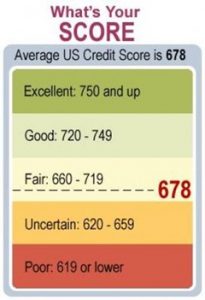 Credit
Credit
This is the ability of a customer to obtain goods or services before payment, based on the trust that payment will be made in the future.
Don’t have credit? Would you like to improve your credit? Building good credit doesn’t have to be difficult, but it does require time and patience. Follow these tips and you’re on your way:
- Pay your bills on time.
Credit Report emphasize your most recent payment record. Paying on time raises your credit score. If you’ve been late, start paying on time! - Pay at least the minimum amount required.
You can always pay more – and it’s a good idea if you can afford it. But you should never pay less than the minimum. - Keep your credit card balances low.
Don’t “max out” your credit cards – that can lower your credit score. - Don’t apply for too many loans or new accounts.
Applying for a lot of credit in a short period of time may concern lenders that you won’t manage your debt well. Only apply for credit when you need it. - Keep your debt-to-income ratio at 20%.
Generally, you should not have credit card or other installment debt that’s more than 20% of your net monthly income. - Establish credit if you don’t have any.
Open a free or low-cost checking or savings account and make regular deposits. Only write checks when you have money to pay for things. And apply for one or two credit cards, use them carefully, and pay them off each month.
NOTE: Not all bills are not equal, some people you do business with will only report your payment history to the credit bureaus when you are late or have fallen behind in payment. Find out what their policies are when it comes to credit reporting. It is not uncommon for persons to be paying on lay-away plans, and store credit for years and still have no credit history, until you miss or fall behind in your payments.
Credit Report
Credit-related transactions appear on your credit report, including your current debts, paid debts, and payment histories. Your credit report is compiled by three private companies: Equifax, Experian, and TransUnion. These companies sell your credit report to banks and other creditors so they can review your past credit history.
Your credit report includes:
- A list of debts and a history of how you’ve paid them.
This can include credit cards, car loans, and student loans. - Any bills referred to a collection agency.
This can include phone and medical bills. - Public record information.
This can include tax liens and bankruptcies. - Inquiries made about your creditworthiness.
An inquiry is made when you apply for credit. Your credit report can also show if you were given credit based on the inquiry.
Adverse or derogatory credit information in your credit report is required to be deleted after 7 years (bankruptcy-related information is required to be deleted after 10 years). Your credit report is continuously updated, which is why you should always know what it looks like. In recent years, some unscrupulous creditors have not reported positive credit information on a timely basis. You want to make sure positive information is reflected accurately, so check your credit often.
The higher your credit score, the easier it’ll be to get a mortgage loan. If you routinely pay your bills late, you may assume you will get a less favorable credit rating, with the result that a loan provider may either reject your mortgage request outright or insist that you pay a massive initial payment for the property purchase or insist on a higher rate of interest (in order to lessen the loan provider’s risk).
As your credit history plays such a vital role in the type and amount of mortgage that loan providers will offer you, make sure that you check your credit report and also organize your financial situation if necessary, prior to, not after, you apply for a mortgage loan. You can get a free copy of your credit report by going to www.annualcreditreport.com.